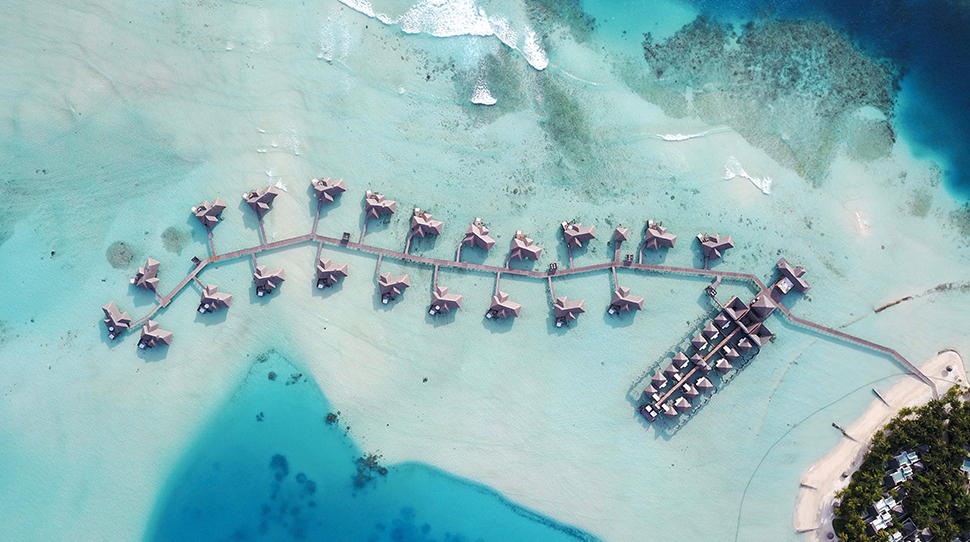

The Maldives is just like the paradise seen in photos. Palm trees fleck white sand beaches and the endless blue sky seems to melt into the pristine turquoise water.
But the nation made up of 1,200 islands scattered in the Indian Ocean faces challenges to maintain its photogenic appearance — and its ecological health.
More than 8 million tons of plastic is dumped into the oceans every year, half of which has only been used once, UNICEF reports. While plastic pollution is a worldwide problem, the Maldives gets hit harder, since it is made up of 99 percent water.
Yet the archipelago also consumes its fair share of the material. According to UNICEF, 280,000 plastic bottles are used and discarded daily in the capital city of Malé alone, and 104 million plastic bags were imported to the Maldives in 2018.
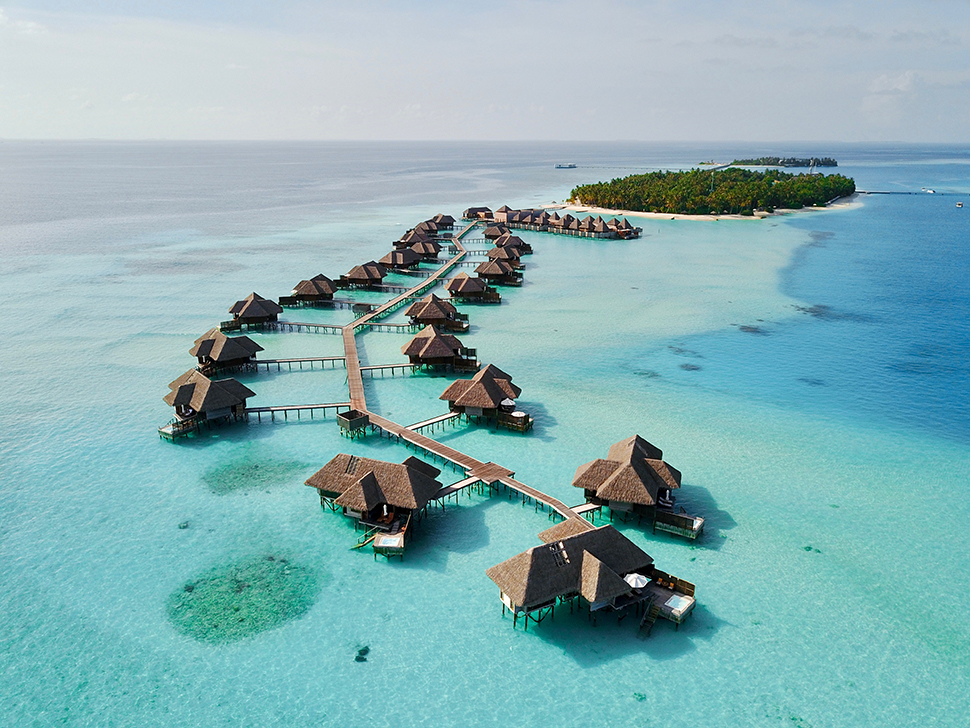
The South Asian country seeks to do its part to halt the pollution on its shores. In July it passed an ambitious law that will ban single-use plastics nationwide by 2025. The island chain also found an ally in Conrad Maldives Rangali Island.
It’s no surprise that the hotel is among the eco pioneers in the region. The Conrad has a longstanding history as a trailblazer in the Maldives: it was the first international brand to arrive more than 20 years ago; the first to construct overwater villas on stilts; the first to open an underwater restaurant; and, as of November, the first hotel in the world to debut an undersea residence, the enchanting MURAKA.
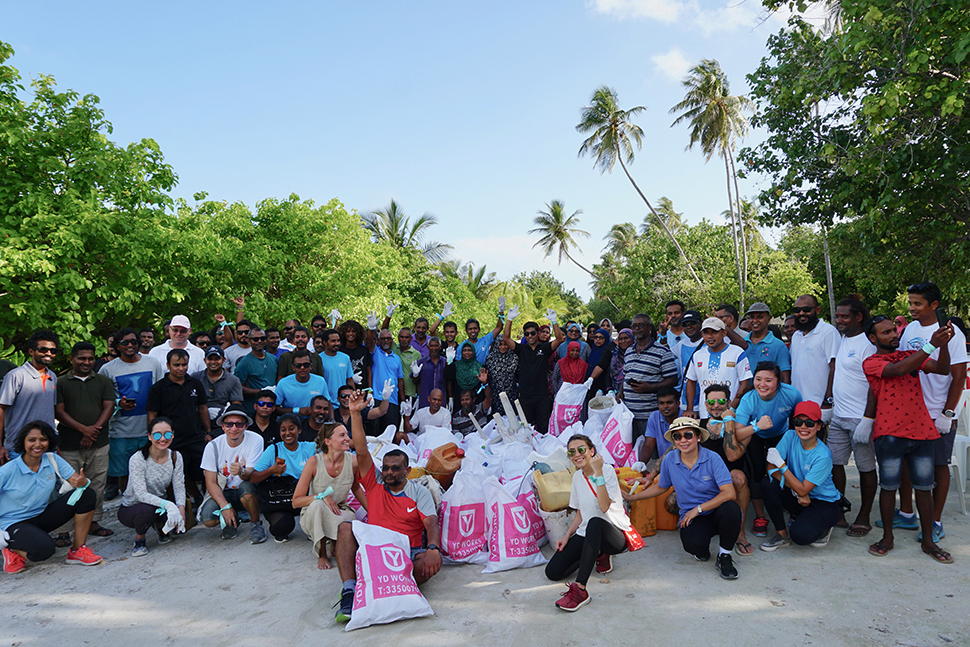
The South Ari Atoll hotel is working to eliminate all plastics on the property by January 2020, which isn’t an easy feat considering the resort encompasses two islands, 11 restaurants and bars, and two spas. You won’t find individual butter or Nutella packets in the morning buffet; instead, the hotel buys the products in bulk and has a machine portion them out. Mini bottles of shampoo and conditioner have been replaced with large refillable dispensers in the bathroom. Plastic straws have been ditched in favor of biodegradable ones. And more changes are afoot: the Conrad will swap out plastic keycards for wooden alternatives, metal water bottles will be given out to guests and recyclable boxed water will accompany those heading out on excursions.
The Conrad made quashing plastics the theme of its Global Week of Service, an annual Hilton-wide initiative (Conrad is part of Hilton Hotels & Resorts) when hotels give back to local communities. A team of Conrad staff ventured to nearby Dhangethi Island for a Plastic Run, a short fun run/walk that ended with a beach cleanup of plastic bottles and other garbage that washed ashore (though it was mostly the former).
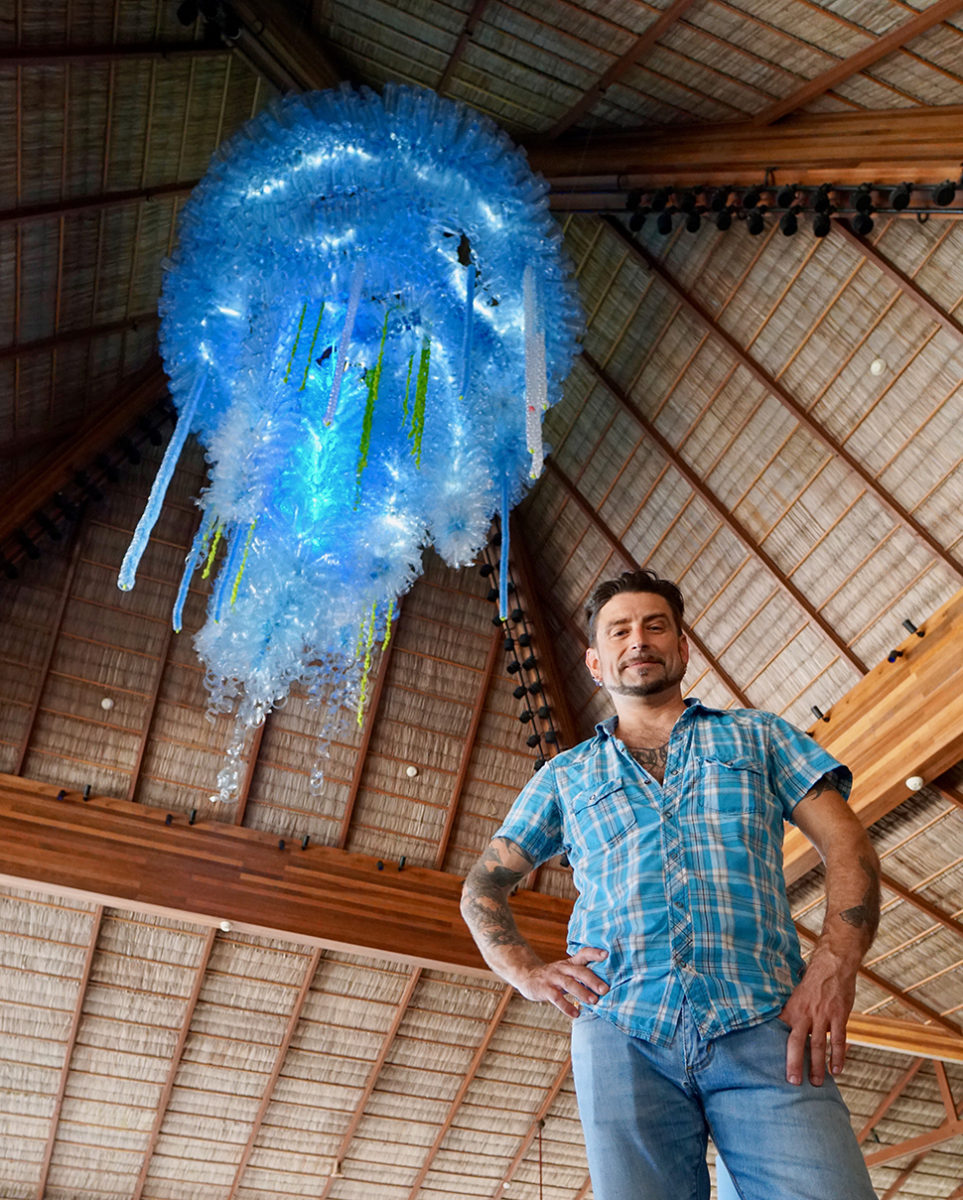
The most visible symbol of the hotel’s commitment to the cause can be found inside Rangali Bar. Dangling from the wood ceiling of the open-air bar is a massive jellyfish. At first glance, it could be mistaken for a Chihuly, with its long, translucent tentacles resembling blue-tinted glass. But the sculpture comes from eco artist John K. Melvin, who was commissioned to create the site-specific piece at the resort. Melvin, whose work has appeared in places like Puerto Rico’s Forbes Travel Guide Five-Star Dorado Beach, a Ritz-Carlton Reserve, spent a six-week residency collecting more than 5,000 plastic bottles from three islands in the Maldives, sculpting and then stringing them with coconut rope, steel cable, wire and other materials.
The upcycled work is titled EvoGyre, a portmanteau of “evolution” and “gyre,” which is a circular ocean current formed by wind patterns and the forces resulting from the Earth’s rotation. Plastic gets stuck in these vortexes.
“During the time I was here making it, we had a lot of interactions, exchanges, conversations with the local community as well as the guests,” says Melvin, who radiates a rocker vibe with his spiky brown hair, trimmed beard and tattoos. “That’s really what this project is about. Eco art is part of a social practice. Talking is more part of the practice than the art itself.”
“Making eco art is like making political art. I try not to be didactic,” the France-based artist says. He obviously is passionate about the environment, which Melvin says came from growing up in a scientific family. That meant he was exposed to climate change at an early age. Since then, he’s had an interest in the relationship between nature and culture.
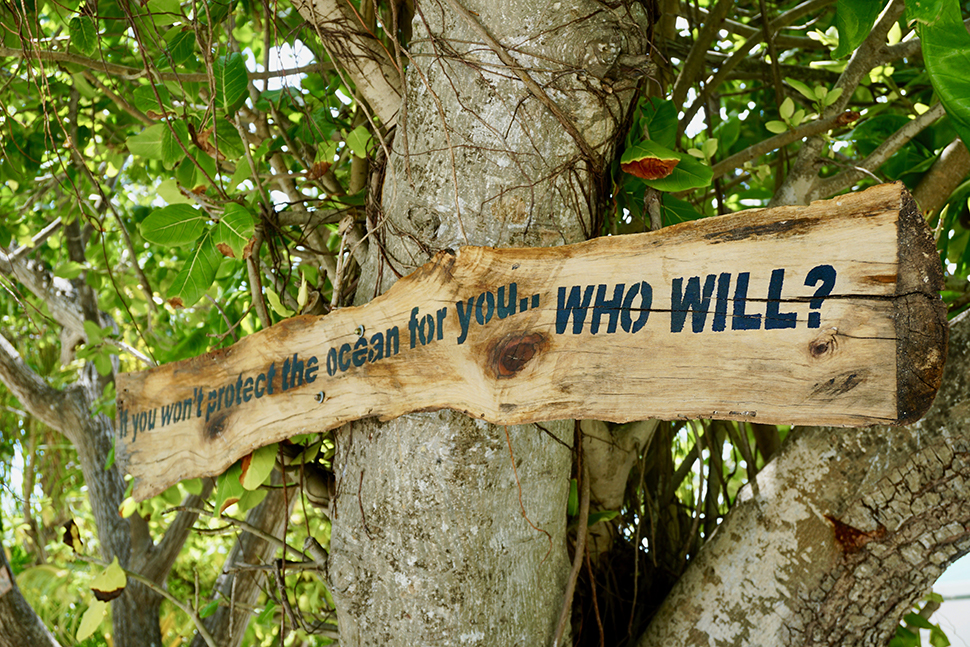
“Environmental science doesn’t get a human reaction,” he says. But art does. It provokes and starts a conversation. Melvin says that as a result of his past work, he has seen farms performing bad practices get shut down and communities institute recycling programs. Of course, he also offers his own solution to some of the plastic pollution: use it to create art. “We are in an evolutionary crisis, as far as I’m concerned,” he says.
“We have to start thinking differently about the way that we use materials and the way that we live in this environment. If I run out of plastic pollution to make art with, that’s a good thing.”
